Making the World A Better Place for Kids
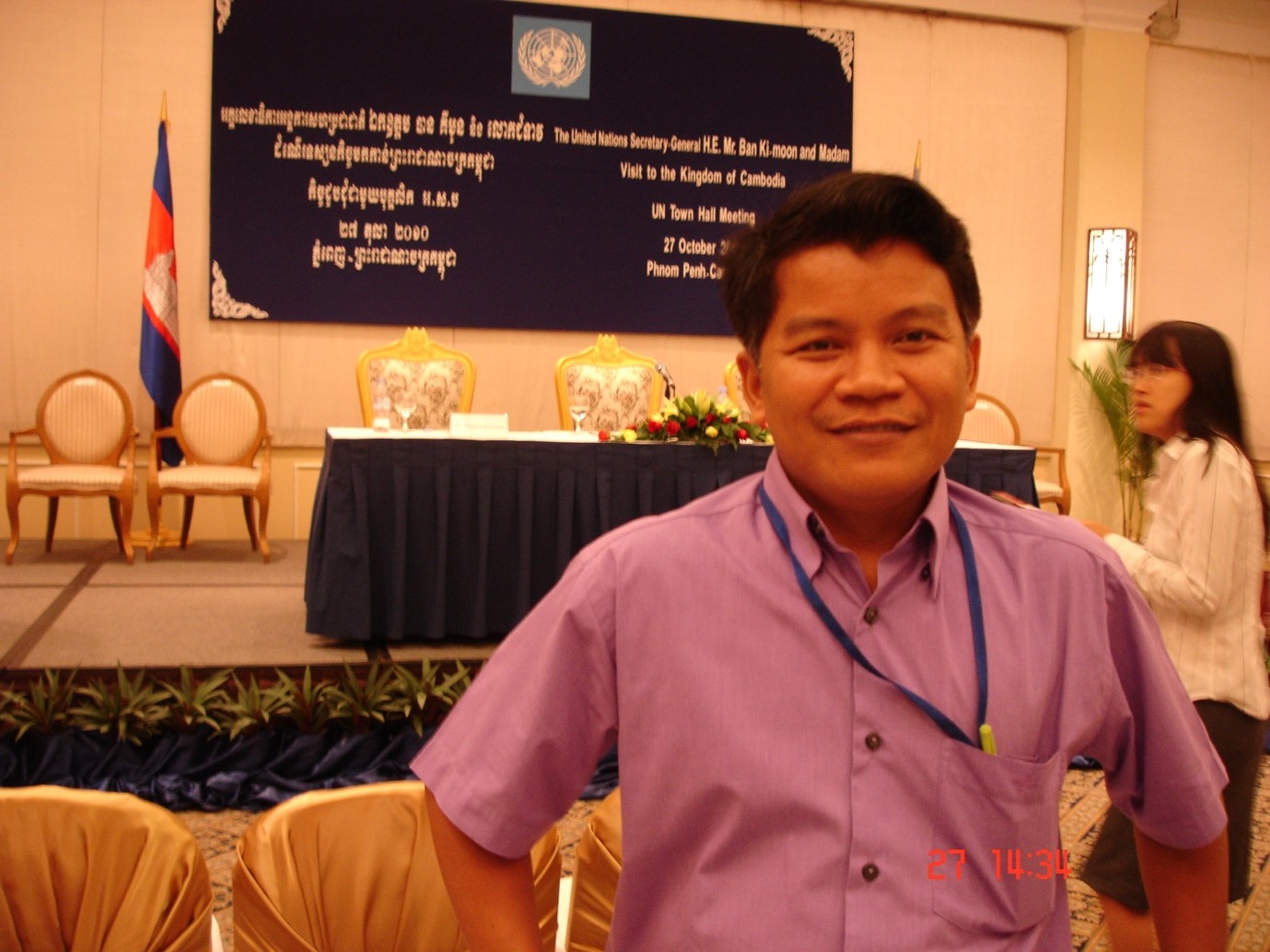
We like to say that our children are our future. Some of the people who are turning this catchphrase into reality — and making a real impact on the ground — are those who work at international organisations like United Nations Children's Fund (UNICEF).
Among them is Vibol Chea (MPP 2006), a Phnom Penh–based Social Policy Specialist at UNICEF Cambodia and an LKYSPP graduate. Working at UNICEF has been a way to make a real difference when it comes to social investments. He says, “It is very interesting work, to help promote the development of children in Cambodia — helping them go to school, get clean water, ensure good nutrition and more.”
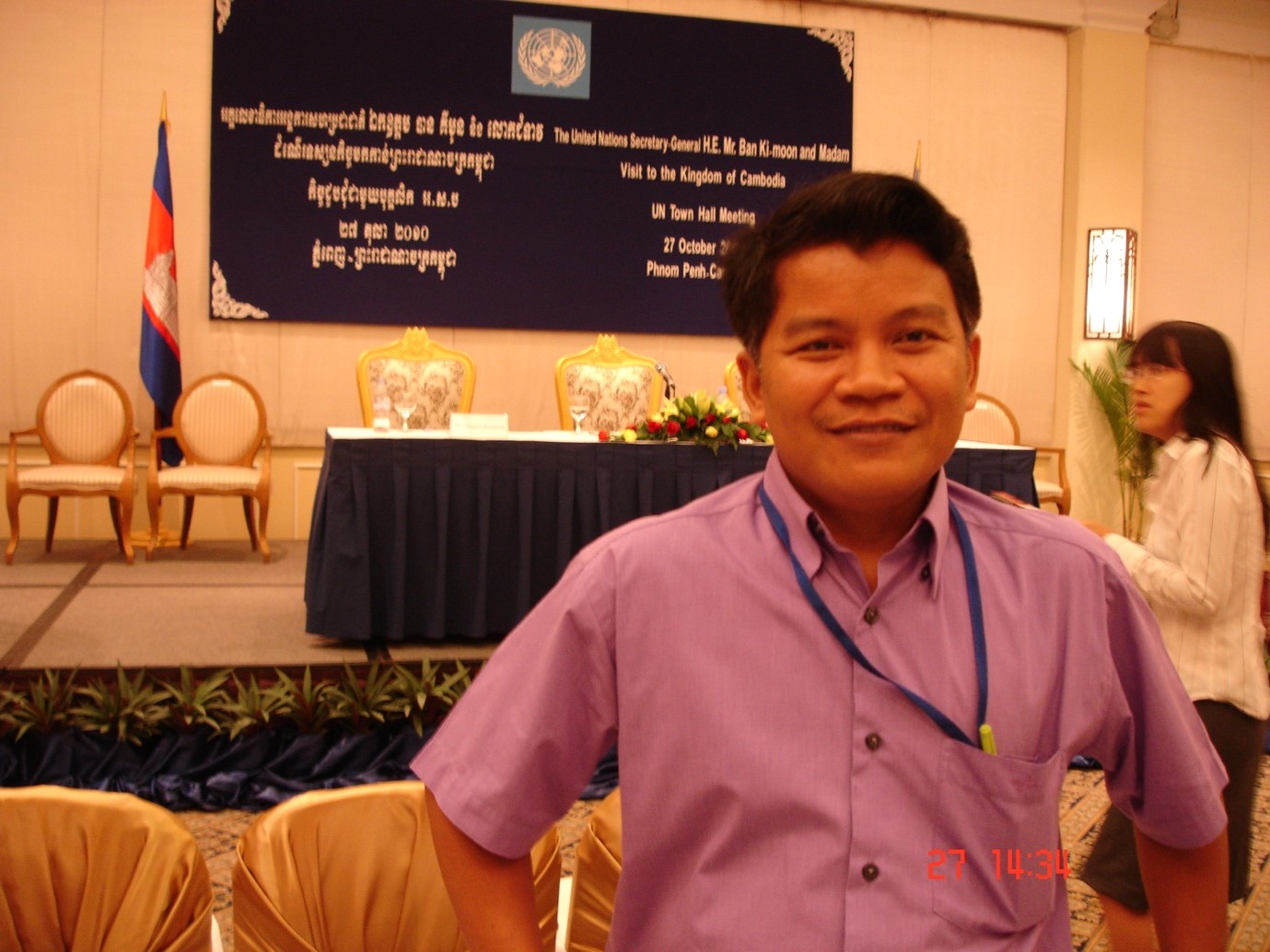
Vibol Chea helps to ensure children living in poverty in Cambodia get access to education, nutrition and clean water.
Another LKYSPP alumnus, Nguyen Thi Trang (MPA 2014), works as a Social Policy Officer at UNICEF Viet Nam. For Trang, her drive to ensure a better life for Viet Nam’s vulnerable children spurs her to do what she does. “We believe that access to social protection helps to mitigate the impacts poverty and give children the opportunity to have better health, education and quality of life. That is the motivation for me to work.”
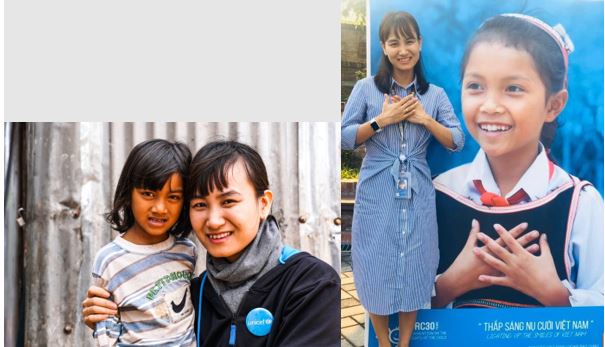
Nguyen Thi Trang is a Social Policy Officer at UNICEF Viet Nam, where she helps to address the needs of vulnerable children in the country.
UNICEF safeguards the rights of children and adolescents around the world. With offices in over 190 countries and territories, the organisation aims to help children fulfil their potential with programmes in different areas such as education, health and hygiene, and to protect them from violence and exploitation.
Tackling child poverty, one issue at a time
Take Trang’s work at UNICEF Viet Nam, for instance. As a Social Policy Officer, she is tasked with providing technical support and advice to the government to develop social policies that help realise children’s rights. She says, “My work is to influence the government policymakers in developing more effective and equitable social policies that prioritise children. For example, I am currently working to make sure that the government’s cash transfer scheme is expanded to cover more children, especially the most vulnerable children in Viet Nam, such as a universal cash grant for them.”
Similarly, Vibol helps UNICEF Cambodia roll out social service and intervention at the local government level, and training at the national level, then develop a database to track the expenditure of development programmes. His attention now includes governance and working with the Cambodian government, for instance, to develop a new social protection scheme for families that looks at the different needs of different age groups.
He says, “Although there is still more to be done in terms of poverty reduction, we also need to look at the multi-dimensional aspects of poverty, such as nutrition and clean water, which is more action-oriented. This is where we try to advocate the government when it comes to encouraging human capital.”
Switching with success
Both Vibol and Trang did not study public administration or policy in their undergraduate years. Vibol is a trained agronomist while Trang did language studies. It was only a few years into their careers that they realised doing a Master’s degree would help them get a leg up in international development.
Trang, who originally had plans to become an English interpreter after graduating, took on an administrative role at UNICEF straight out of university in 2005, in an education programme that included promoting bilingual education for ethnic minority students in Viet Nam. She soon discovered she enjoyed the world of development work, which had a direct impact on other people’s lives.
It was during her sixth year at UNICEF that Trang decided to further her studies to cement her growing interest in policy development. LKYSPP was her first choice for her master’s degree in public administration, she recalls. “The school is very well known for its programmes. I had been looking at other scholarships at other schools but I chose LKYSPP because of the relevance to my work at UNICEF and how I would be able to network with those in similar positions from the region.”
As for Vibol, he was an agronomist at another UN organisation, the UN Development Program. There, while doing partnership work with UNICEF colleagues, he began to learn about child advocacy and investing in children for the future. They then started an initiative with the World Food Program to discuss and implement a social development pilot at the local level.
Vibol decided to attend LKYSPP after talking to a UNDP colleague who had studied at LKYSPP and enthused about the classes. He says, “I did well implementing projects in the field at UNDP, but I wanted to know more about budgeting policies, resources and generating research. My colleague told me that the LKYSPP programme offered those skillsets along with understanding the bigger picture, so I said why not and sent in my application.”
He too studied at LKYSPP on a scholarship, and says he thoroughly enjoyed the courses offered there. In 2010, several years after graduating from LKYSPP, he took on a job at UNICEF where he planned and coordinated field operations. He then switched to public policy and rural development work about five years ago, working with national government policymakers in research and developing guidelines and policy papers.
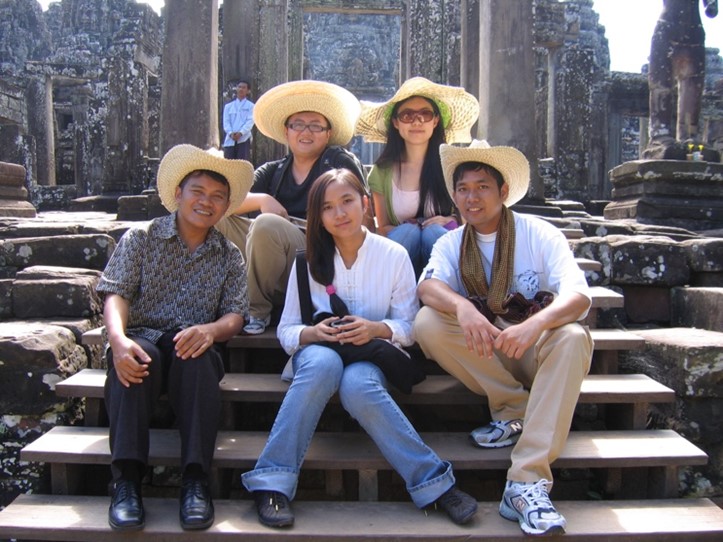
Vibol Chea with his LKYSPP schoolmates on a trip to Siem Reap.
He adds, “For anyone who wants to work within government and contribute to country reform while also interacting and working with policymakers, the LKYSPP programme would prepare them well to succeed in their job. Elective modules, such as public finance management, negotiation and research methodology, are all very relevant when it comes to working at public institutions.”
Trang also attests to how studying for her master’s at LKYSPP, where she also studied on a scholarship, continues to help her at work today. After getting her Master’s, Trang received job offers with other international development organisations but stayed on at UNICEF and took on a new role as a social policy official.
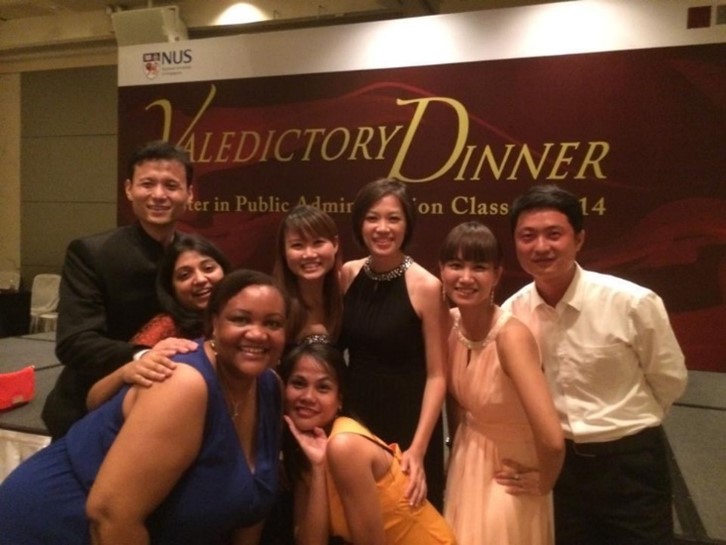
Trang with her MPA 2014 classmates during their Valedictory Dinner at LKYSPP.
“I learnt about public policy analysis and evidence-based policy development. We had to analyse issues from different perspectives and learnt how to convince policymakers of our recommendations with the most feasible solutions.
“All of that helped develop my analytical skills in the work I do today. When I have to advocate policy, I provide the government with different policy options, their advantages and identify who I need to work with to influence policy development. It was a wonderful experience when I was studying at LKYSPP as it really changed my perspective and helped to develop my network.”

